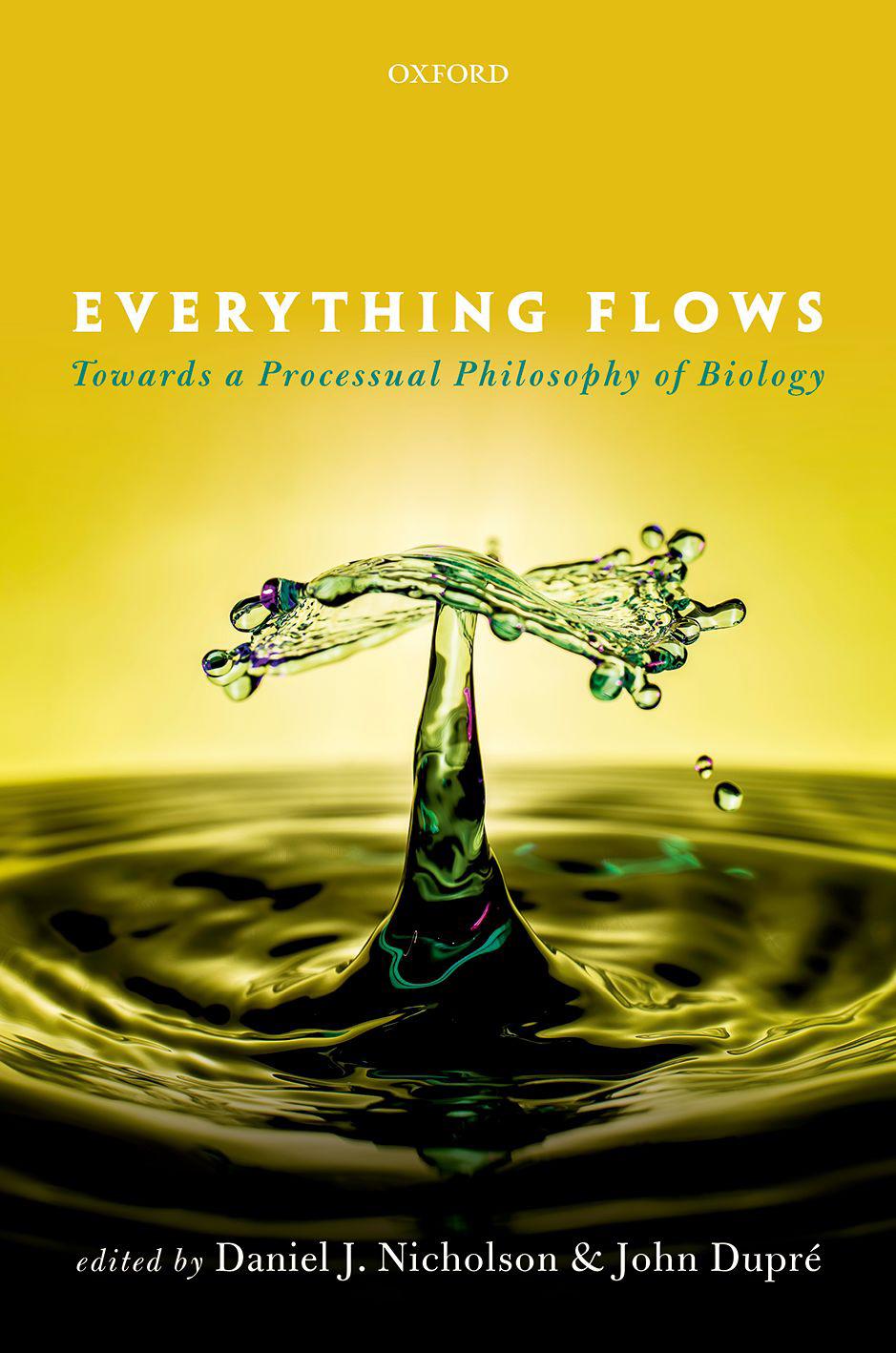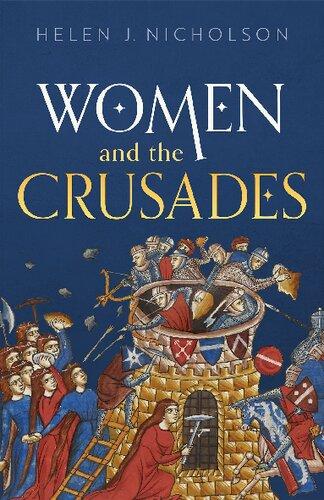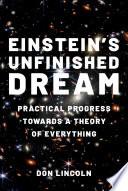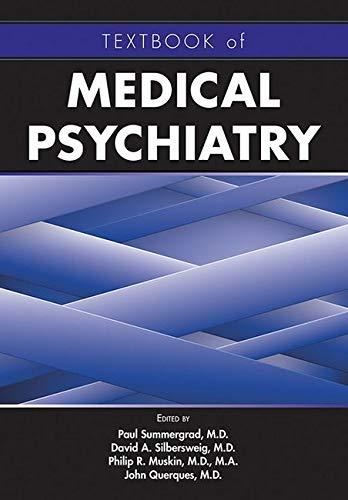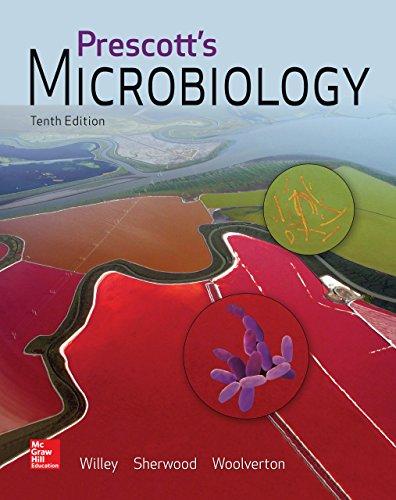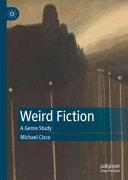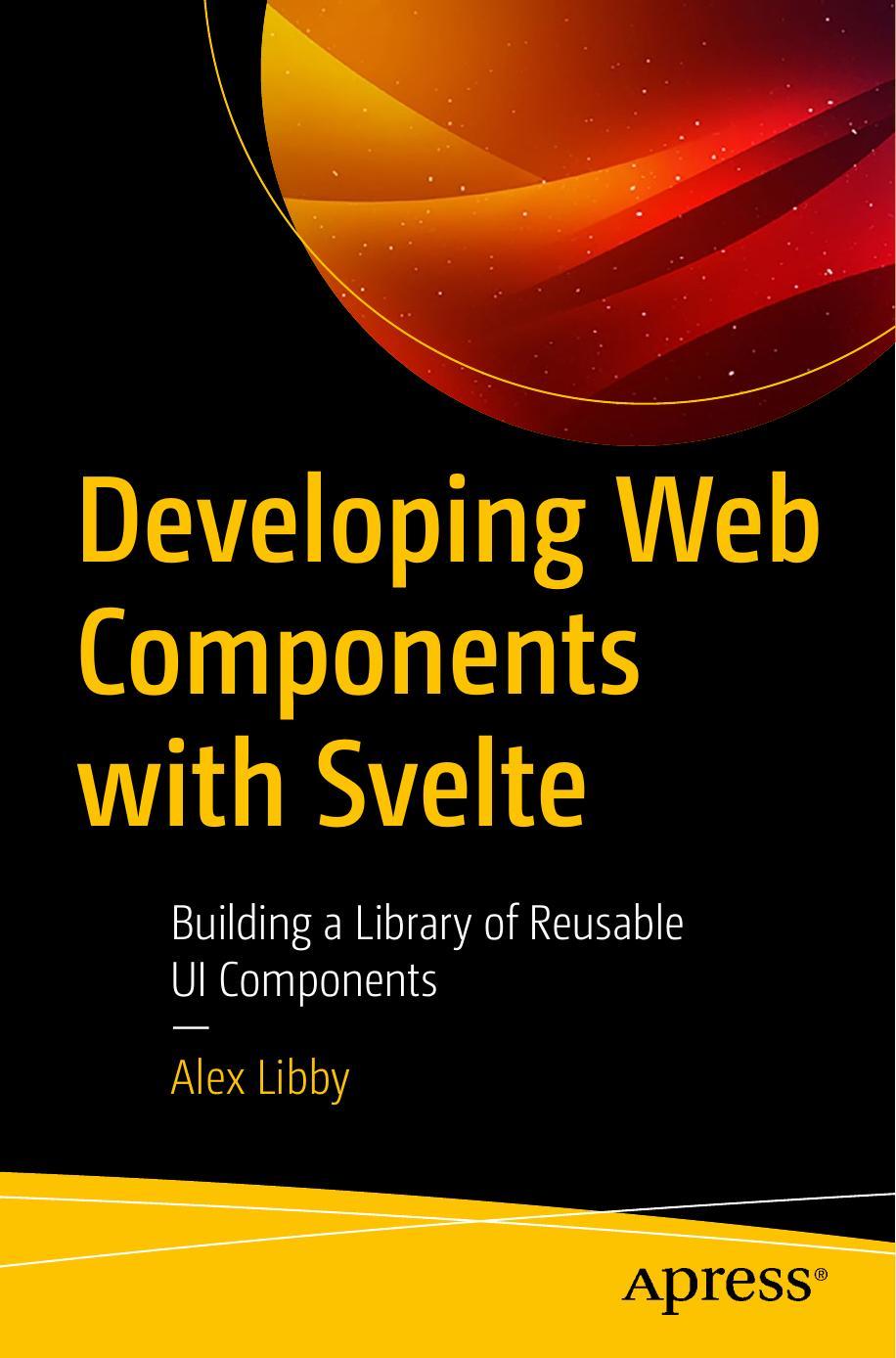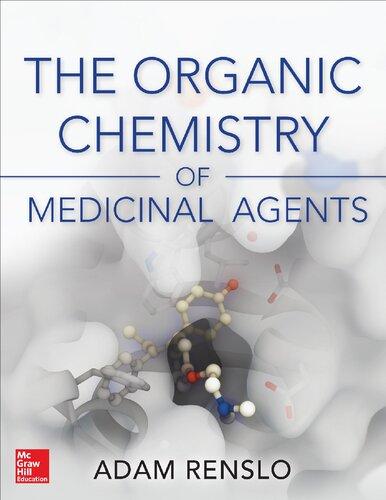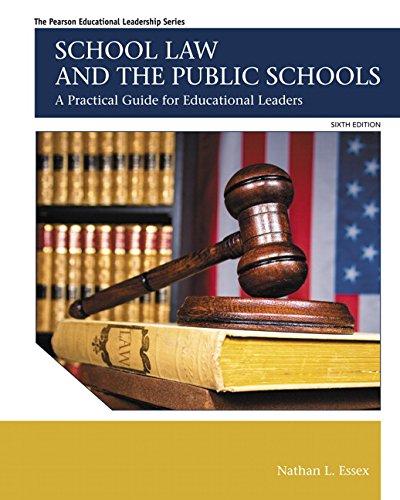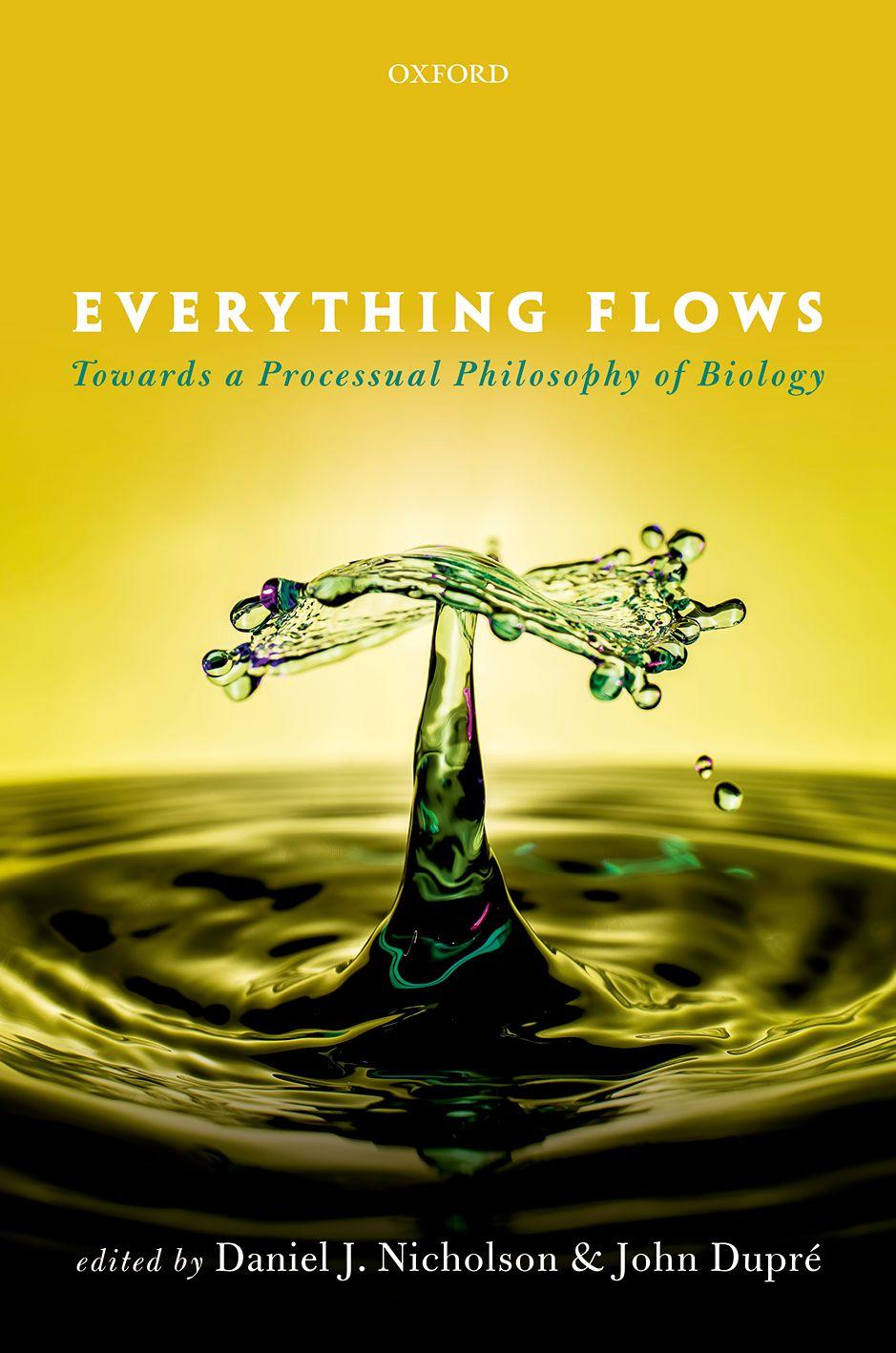EverythingFlows TowardsaProcessual PhilosophyofBiology
DanielJ.Nicholson andJohnDupre ´
GreatClarendonStreet,Oxford,OX26DP, UnitedKingdom
OxfordUniversityPressisadepartmentoftheUniversityofOxford. ItfurtherstheUniversity’sobjectiveofexcellenceinresearch,scholarship, andeducationbypublishingworldwide.Oxfordisaregisteredtrademarkof OxfordUniversityPressintheUKandincertainothercountries ©theseveralcontributors2018
Themoralrightsoftheauthorshavebeenasserted
FirstEditionpublishedin2018
Impression:1
Somerightsreserved.Nopartofthispublicationmaybereproduced,storedin aretrievalsystem,ortransmitted,inanyformorbyanymeans,forcommercialpurposes, withoutthepriorpermissioninwritingofOxfordUniversityPress,orasexpresslypermitted bylaw,bylicenceorundertermsagreedwiththeappropriatereprographics rightsorganization.
Thisisanopenaccesspublication,availableonlineanddistributedunderthetermsofa CreativeCommonsAttribution – NonCommercial – NoDerivatives4.0 Internationallicence(CCBY-NC-ND4.0),acopyofwhichisavailableat http://creativecommons.org/licenses/by-nc-nd/4.0/.
Enquiriesconcerningreproductionoutsidethescopeofthislicence shouldbesenttotheRightsDepartment,OxfordUniversityPress,attheaddressabove
PublishedintheUnitedStatesofAmericabyOxfordUniversityPress 198MadisonAvenue,NewYork,NY10016,UnitedStatesofAmerica
BritishLibraryCataloguinginPublicationData
Dataavailable
LibraryofCongressControlNumber:2017958461
ISBN978–0–19–877963–6
Printedandboundby
CPIGroup(UK)Ltd,Croydon,CR04YY
LinkstothirdpartywebsitesareprovidedbyOxfordingoodfaithand forinformationonly.Oxforddisclaimsanyresponsibilityforthematerials containedinanythirdpartywebsitereferencedinthiswork.
Contents
Acknowledgements vii Contributors ix
Foreword xi
PartI.Introduction
1.AManifestoforaProcessualPhilosophyofBiology3 JohnDupre´andDanielJ.Nicholson
PartII.Metaphysics
2.ProcessesandPrecipitates49 PeterSimons
3.Dispositionalism:ADynamicTheoryofCausation61 RaniLillAnjumandStephenMumford
4.BiologicalProcesses:CriteriaofIdentityandPersistence76 JamesDiFrisco
5.GenidentityandBiologicalProcesses96 ThomasPradeu
6.OntologicalToolsfortheProcessTurninBiology:SomeBasic NotionsofGeneralProcessTheory113 JohannaSeibt
PartIII.Organisms
7.ReconceptualizingtheOrganism:FromComplexMachine toFlowingStream139 DanielJ.Nicholson
8.ObjectcyandAgency:TowardsaMethodologicalVitalism167 DenisM.Walsh
9.Symbiosis,TransientBiologicalIndividuality,andEvolutionary Processes186 Fre´de´ricBouchard
10.FromOrganizationsofProcessestoOrganismsandOther BiologicalIndividuals199 ArgyrisArnellos
PartIV.DevelopmentandEvolution
11.DevelopmentalSystemsTheoryasaProcessTheory225 PaulGriffithsandKarolaStotz
12.Waddington’sProcessualEpigeneticsandtheDebateoverCryptic Variability246 FlaviaFabris
13.CapturingProcesses:TheInterplayofModellingStrategiesand ConceptualUnderstandinginDevelopmentalBiology264 LauraNuñodelaRosa
14.IntersectingProcessesAreNecessaryExplanantiaforEvolutionary Biology,butChallengeRetrodiction283 EricBaptesteandGemmaAnderson
PartV.ImplicationsandApplications
15.AProcessOntologyforMacromolecularBiology303 StephanGuttinger
16.AProcessualPerspectiveonCancer321 MartaBertolasoandJohnDupre ´
17.MeasuringtheWorld:OlfactionasaProcessModelofPerception337 Ann-SophieBarwich
18.PersonsasBiologicalProcesses:ABio-ProcessualWayOut ofthePersonalIdentityDilemma357 AnneSophieMeincke
Acknowledgements
TheworkleadingtothisvolumeisacentraloutcomeofagrantfromtheEuropean ResearchCouncilundertheEuropeanUnion’sSeventhFrameworkProgramme (FP7/2007–2013)/ERCGrantAgreement324186,onwhichJDwasthePrincipal InvestigatorandDJNwasaResearchFellow.WeareverygratefultotheERCforits support.Morespecifically,themajorityofthepapershereinoriginatedatthe workshop “ProcessPhilosophyofBiology”,the firstmajoreventfundedbythe grant,heldinExeterinNovember2014.Wewouldliketothankalltheparticipants inthatevent,whichmarkedthe firststepontheroadtothispublication.
WemustalsothankStephanGuttingerandAnneSophieMeincke,theothertwo ResearchFellowsontheproject,whohavebeenessentialcontributorstoeachstageof thedevelopmentoftheproject,bothintellectuallyandpractically.Additionally, anyonewhohasrunalargeresearchprojectwillknowhowimportantitistohave acapableadministrator,andwehavebeenveryfortunatetohaveCheeWongin thatcapacity.Wearemostgratefulforhertirelesscontributionstotheproject’ s management.
Finally,wehavehadtheprivilegeofinvitingaverysubstantialnumberof colleaguesfromaroundtheworldtoworkshops,colloquia,andotherkindsof collaborativeresearchvisits.Wewillnottrytonamethem,ifonlybecausewe wouldsurelyleavesomeoneout,butwearegratefultothemall.Moreeventhanis obviousfromthemanyauthorswhohavecontributedtothevolume,thisisan outputthathasbeeninfluencedbyanextendedinternationalandinterdisciplinary academiccommunity.
Contributors
G
A,CentrefortheStudyofLifeSciences(Egenis),Universityof Exeter,Exeter,UK
R
L A,CentreforAppliedPhilosophyofScience,SchoolofEconomics andBusiness,NorwegianUniversityofLifeSciences,Ås,Norway
A A,IAS-ResearchCentreforLife,Mind,andSociety,Departmentof LogicandPhilosophyofScience,UniversityoftheBasqueCountry,SanSebastián, Spain
E B,InstituteofBiologyParis-Seine,SorbonneUniversity,Paris,France
A-S B
,CenterforScienceandSociety,DepartmentsoftheBiologicalSciencesandPhilosophy,ColumbiaUniversityintheCityofNewYork,New York,USA
M B,InstituteofPhilosophyofScientificandTechnologicalPractice, CampusBio-MedicoUniversityofRome,Rome,Italy
F
B
,DepartmentofPhilosophy,UniversityofMontreal,Montreal, Canada
J
DF ,KonradLorenzInstituteforEvolutionandCognitionResearch, Klosterneuburg,Austria
J D´,CentrefortheStudyofLifeSciences(Egenis),UniversityofExeter, Exeter,UK
F F,CentrefortheStudyofLifeSciences(Egenis),UniversityofExeter, Exeter,UK
P
G,DepartmentofPhilosophyandCharlesPerkinsCentre,University ofSydney,Sydney,Australia
S G ,CentrefortheStudyofLifeSciences(Egenis),Universityof Exeter,Exeter,UK
A S M ,CentrefortheStudyofLifeSciences(Egenis),Universityof Exeter,Exeter,UK
S M,DepartmentofPhilosophy,UniversityofDurham,Durham, UKandCentreforAppliedPhilosophyofScience,SchoolofEconomicsandBusiness, NorwegianUniversityofLifeSciences,Ås,Norway
D J.N,CentrefortheStudyofLifeSciences(Egenis),Universityof Exeter,Exeter,UK
L
NÑ R,IAS-ResearchCentreforLife,Mind,andSociety,DepartmentofLogicandPhilosophyofScience,UniversityoftheBasqueCountry,San Sebastián,Spain
T
P,ImmunologyUnit,CNRSandUniversityofBordeaux,Bordeaux, France
J
S,DepartmentofPhilosophyandtheHistoryofIdeas,Universityof Aarhus,Aarhus,Denmark
P S,DepartmentofPhilosophy,TrinityCollegeDublin,Dublin,Ireland
K
S,DepartmentofPhilosophy,MacquarieUniversity,Sydney,Australia
D
M.W,DepartmentofPhilosophy,InstitutefortheHistoryandPhilosophyofScienceandTechnology,DepartmentofEcologyandEvolutionaryBiology, UniversityofToronto,Toronto,Canada
Foreword
[T]hereisreallyno ‘thing’ intheworld.
DavidBohm(1999:12)
[O]urmindhasanirresistibletendencytoconsidertheideaitmostfrequently usestobetheclearest.
HenriBergson(1946:214)
Thereisanotablelackofsubstance,notinthewritingyouwill findinthisbook, Iassureyou,butoutthereinthedomainoftheliving.Let’sfaceit:thereisnothingin biology(or,asBohmwouldhaveit,intheworld).Thingsareabstractionsfroman ever-changingreality.Realityconsistsofahierarchyofintertwinedprocesses.Iflifeis change,thentheactivitiesdrivingthischangearewhatwemustexplain.Yetwelack conceptsandexperimentalapproachesforthestudyofthedynamicaspectsofliving systems.Thisseverelylimitstherangeofquestionsweask,mostofthetimeeven withoutourrealizing.Theproblemissoobviousitisrarelyevertalkedabout.There areveryfewexplicitlyprocessualtheoriesinbiologytoday.Asapractisingbiologist, I’vealwaysfoundthisutterlybafflinganddisappointing.Weremainstrangely fixated onexplanationintermsofstaticunchangingentities.
Theprimeexampleofthissubstance fixationinbiologyisourloveaffairwith genes,thoseparticulateagentsofheredityanddevelopment.Itisalltooeasyfor biologiststoslipintodeterministicandpreformationistlanguage,wheregenes representsomesortofenduringessenceofanephemerallivingbody.Asaresult, themysterioussourceofgeneagencyremainsunexaminedandunexplained. Anotherexampleisourinsistencethatproper ‘mechanistic’ explanationsofliving organismsmustbeformulatedatthelevelofcomponentmolecules,whichwetaketo beunchangingatthetimescalesrelevanttotheprocesseswestudy.JamesLadyman andDonRoss(2007),intheirbook EveryThingMustGo,callthisthemetaphysicsof ‘microbangings’,smallentitiescausingtheireffectsbybumpingintoeachother. LadymanandRosspointoutthatthisviewisoutdatedandinconsistentwiththe dynamicviewoftheworldgiventousbymodernphysics.
Our fixationonstaticthingsleadstofallaciouspatternsofreasoning,withinbiology andelsewhere.TheFrenchprocessphilosopherHenriBergsonalludedtothisinthe quoteabove,whileAlfredNorthWhitehead(1925:52)putitmoreexplicitlyby callingit ‘thefallacyofmisplacedconcreteness ’.Thisconsistsintheunwarranted reificationofobjects,whichbecomefundamentalandreplacetheunderlyingdynamic realityinourthinking.Thisfallacyisdeeplyengrainedinourcognitivehabits.From averyearlystageofdevelopment,welearntodistinguishobjects,toisolatethem fromtheircontext.CognitivelinguistsGeorgeLakoffandMarkJohnson(1980:30–2) havesuggestedthatthisreflectsatacitcommitmenttoadoctrineof ‘containment’ : wetreattheworldasacontainerofobjectsthatchangepropertiesorlocationand interactwithoneanother.Eachobjectisinturnacontainerwithsmallerobjects
inside,andsoon.Thisdoctrineisfundamentaltoourthinking;itformsthebasisof settheoryandrelationallogic.Itisverydeeplyrootedinourhumannature:allwestern languagesshareit,evenancientones.Toidentifyanobjectasacontainer,wemust establishitsboundariesaspreciselyaspossible.Whereandwhendoesitbegin?Where andwhendoesitend?Weinstinctivelycraveforclearandrigorousanswersto suchquestions.
However,modernsciencesuggeststhatrealityissimplynotlikethat.Theworldis fulloffuzzyboundaries.Seeminglyunchangingentitieskeeponemergingand decayingifweconsiderthemoveralongenoughtimespan.Moreover,itisimpossibletosaypreciselywhentheytrulybecomewhattheyareandwhentheyceasetobe themselves.Orwheretheybeginandwheretheyend.Thisproblemofidentification andindividuationisbeautifullyillustratedbytheancientGreekthoughtexperiment abouttheshipofTheseus.Accordingtothelegend,theshipwaspreservedbythe AtheniansforcenturiesuponTheseus’ returnfromhisjourneys.Intheprocess,each plankofthehullwasreplacedwhenitstartedtorot,untilnoneoftheoriginalplanks wasleft.Justasinourownbodies,thesubstancethatmakesuptheshipisconstantly replaced.Doesthismeanthattheshipchangesovertime,ordoesitremainthesame? Asthisconundrumillustrates,weneedcriteriaforrecognizing,individuating,and classifyingprocesses.Weneedmoreaccurateandadequatethinkingtoolsthatletgo oftheabstractionoftheobject.Inshort,weneedtotranscendthelimitationsof substance-basedthinking.Thisiswhatthebookyouhaveinyourhandssetsouttodo.
Thisisnotarmchairphilosophy,norisitanexerciseinspeculativesystem building.Thisbookoutlinesaprocessualresearchagendafortheoreticalbiology withdirectandwide-rangingimplicationsforpracticingbiologists.Itconnectsto specificareasofinquiry,suchascancergenetics,evolutionarytheory,developmental biology,andtheneuroscienceofolfaction.Itiswritteninalanguagethatmakesit accessiblenotjusttophilosophersbutalsotoexperimentalists.And,perhapsmost importantly,itchallengesmanyofthesubstance-basedassumptionsthathamper progressinspecificdomains.Thesefundamentalassumptionsabouttheworldshape theresearchquestionswepursueandtheexplanationsweacceptassatisfactory.
Unfortunately,modernscientificcurriculahavelongforgottentoteachstudents aboutthesehiddenaspectsofscience.Evenworse,theformatofscientificmeetings andpapersisdesigneddeliberatelytosweepthesephilosophicalfoundationsunder therug.Theyhavebecomeinvisible,barredfromtheconsciousattentionofmany researchers.Inignoranceoftheirownmetaphysicalassumptions,scientistsare fallingbackonnaïve,oftenneopositivistpreconceptionsthatseverelyconstrain theirthinkingandkeeptheirmindsclosedtothepossibilityofunconsidered alternatives.Thisisaterribleshame.Ifthisbooksucceedsindoingonlyonething, Ihopethatitwillbetoignitealivelyandpublicdiscussionamongresearchersinthe lifesciencesaboutourunderlyingphilosophicalworldviewsandtheirlimitations.
Myownscientifictrajectoryhasbeeninspiredandshaped,inanabsolutelycrucial way,bysuchphilosophicalconsiderations.Asachild,Iwasverystronglycommitted, bothemotionallyandintellectually,toaviewofstaticpreservation.Iamwritingthese wordswhileonvacationinmyhometownofTschiertschen,asmallmountainvillage intheSwissAlps.Icanassureyouthatthereisastronganddeeplyingrained resistancetochangeinruralSwisssociety.Likemanyofmycountrypeople,Ialso wishedtopreservethebeautyofthemountainenvironmentIgrewupinandthe
wealthandorderlinessofitssociety.Itseemedperfecttomeasitwas.Thinkingthis through,however,Ibecameawareofthesuffocatingdreadofsuchavision.Thiswas averyvisceralrealization.EverythingthatisbeautifulandexcitingaboutthemountainsIlovehasitsbasisinthedynamicalprocessesthatshapethem:eon-long upheavalanderosion,thewildtorrentssomuchappreciatedbytheRomantics,the unpredictabilityoftheweather,andatraditionoftoughhigh-altitudelife, flexibly adaptingtoever-changingandharshenvironmentalconditions.Tome,staticpreservation,afreezingofthecurrentstate,nomatterhowprecious,killsallthatis beautiful,allthatisexciting.Theillusionofstabilityisjustthat:anillusion,anda perilousoneatthat.Thisrealizationwasitselfaslowandgradualprocess,nota suddenepiphany.Andithasguidedmyjourneyofexplorationeversince. Itguidedmeduringmyundergraduatetrainingasageneticist,whichoccurredina staunchlyreductionistmolecularbiologyresearchenvironment.Isufferedfromthe stronglyantiphilosophicalattitudearoundme,butwasnotabletoexpressmy dissatisfactionexplicitlyandconvincingly.IwishIhadknownmoreaboutprocess thinkingbackthen,togivemydoubtsandqualmsfocusandrigor.Whoknowsifthis wouldhavechangedanything,asmostofmycolleaguesdidn’tevenfeelthatthere wasaproblem.Worsestill,theythoughtthatmolecularbiologistsdidn’tneedany philosophyatall,sincetheyweredealingwithhardempiricalfacts!Itdidn’thelpto pointoutthatthisisitselfaphilosophicalstatement.Infact,nowadaysscientists oftenusetheterm ‘philosophical’ inaderogatorymanner,todescribequestionsthat mayormaynotbeinteresting,butaredefinitelynotanswerablegivenourcurrent stateofresearch.Science,itisbelieved,willincreasinglyreplacephilosophyby makingsuchquestionsanswerable.Thisattitudehasalwaysbotheredme.Itcreates akindofintellectualmonoculturethatfocusesonlyonthelowest-hangingfruit:the mottoofscienceastheartofthefeasible,takentoanunhealthyextreme.
Everybodyaroundmewasobsessedwiththesamequestion:howtodecodethelogic ofgeneexpressionduringdevelopmentbystudyingtheregulatorysequencesonthe DNAthatarethoughttoimplementthislogic.Ifeltthatmycolleaguesascribedan almostmagicalagencytothosesequences.Thecentralideawas(andtoalargeextent stillis)thatthereissomesortof ‘code’ thatcanbereadoutoftheDNAandthatwill resultinaparticularpatternintheembryoatsomestageofdevelopment.Everybody waslookingforthegeneticprogramformedbythiscode:preformationistthinkingpar excellence!Andyetveryfewpeopleseemedtobelievethattheirunderlyingassumptionswereproblematicandwarrantedphilosophicalscrutiny.WhenIlookedfor postgraduateadvisors,Ideliberatelysoughtout(andwasluckyto find)anumberof exceptionstothiswidespreadruleofwilful,self-imposedphilosophicalignorance.
ThemosteclecticofthesewasBrianGoodwin,anunorthodoxandopen-minded thinkerifthereeverwasone.Brianbroughtmeintocontactwithprocessthoughtin theformofHusserl’sandMerleau-Ponty’sclassicphenomenology,aswellaswith hisowntheoryofbiologicalstructuralism(e.g.WebsterandGoodwin1996).On theonehand,Ifoundtheseviewstremendouslyfascinatingandinspiring,fundamentallyalteringandrefocusingmythinkingaboutwaysofbecominginembryology. Butontheother,Ifeltthattheseapproacheswereabitvagueanddetachedfromcurrent experimentalpractices.Luckily,aroundthesametimeIlearnedthemathematicaland conceptualtoolsofdynamicalsystemstheoryfromBrian,NickMonk,andmydoctoral supervisor,JohnReinitz.Thesetoolscouldbecombinedinapowerfulwaywith
quantitativeexperimentalworktostudytheprocessesofpatternformation.Duringthis stageofmycareermyinterestsdecidedlymovedawayfromthemoleculardetailsand thesubstance-basedapproachofmoleculardevelopmentalgenetics.
ThisendedupcausingastringofproblemsthatIdidn’tanticipateatthetimebut whichareobvioustoexplainwiththebenefitofhindsight.Manyofmyapplications forpostdoctoralfellowships,andthenforgrantsthatmightfundmynewlyestablishedindependentresearchgroup,wererejected.Paperscamebackfromjournals too,oftenunreadorwithstrange,uninformative,andevenhostilereviews.Itwasn’t onlythattheeditorsandrefereesthoughtthatmyresearchwas flawed.Theydidn’t finditinterestingatall,andmostlydidn’tevenmakeanefforttounderstandthe question.IttookmeawhiletorealizethattheproblemIhadwasn’tscientificbut philosophical!Sadly,scientificreviewersareoftensostuckinthehabitsandtraditionsoftheir fieldthattheycan’tthinkofresearchbeingworthwhileifitdoesnot neatly fitintooneoftheirfamiliarcategories.
Thisiswhenprocessthinkingitselfbecameacentraland fixedpartofmyresearch agenda.Publishingourphilosophicalargumentshasallowedmenotonlytodetect weaknessesand findabettergroundingformyownthinking,butalsotobetter explainwhyIdowhatIdotomycolleagues.AndslowlyI’mbeginningtoseean effect.OverthelastdecadesI’vebeenhappytoobserveinterestshiftingtowards dynamicalsystemsmodellingindevelopmentalbiology.Reviewerswhostatethat ‘nothingcaneverbelearnedfromamodel’ stillexist,buthavebecomeexceedingly rarethesedays.Infacttheyappeartobeaspeciesonthevergeofextinction.An increasingnumberofmycolleagueshaveovercomethescepticismtheyinitially exhibitedandnowtolerate,orevenactivelysupport,theprocessualresearchagenda asmallminorityofushavebeenpursuingforyears.
Thisrecenttrendistremendouslyencouraging.Quiteclearly,thetimeisripefor moreprocessthinking,notonlyindevelopmentalbiologybutacrossthelifesciences. ThisiswhyIamsoexcitedaboutthecollectionofessaysinthisbook.Itisan importantandtimelyendeavour.Ihopeitwillinspireyoungbiologistsinparticular toopentheirminds,towidentheirintellectualhorizons,andtoadoptnewphilosophicalperspectives.Ialsohopeitencouragesthemtoaskradicallynewquestions, buildnewconceptualframeworksandtheories,anddevelopnewexperimental approachesthatdirectlyaddressthefundamentallyprocessualnatureofliving systems.
Enjoytheread!Icertainlydid.
JohannesJaeger AssociateResearcher ComplexityScienceHubVienna Klosterneuburg,Austria,16August2017
References
Bergson,H.(1946). TheCreativeMind. NewYork:PhilosophicalLibrary. Bohm,D.andBiederman,C.(1999). Bohm-BiedermanCorrespondence,vol.1: Creativityand Science. London:Routledge.
Ladyman,J.andRoss,D.(2007). EveryThingMustGo:MetaphysicsNaturalized. Oxford: OxfordUniversityPress.
Lakoff,G.andJohnson,M.(1980). MetaphorsWeLiveBy. Chicago,IL:UniversityofChicago Press.
Webster,G.andGoodwin,B.(1996). FormandTransformation:GenerativeandRelational PrinciplesinBiology. Cambridge:CambridgeUniversityPress. Whitehead,A.N.(1925). ScienceandtheModernWorld. NewYork:Macmillan.
AManifestoforaProcessual PhilosophyofBiology
JohnDupréandDanielJ.Nicholson
1.Introduction
Thisbookisaventureinthemetaphysicsofscience,theexplorationofthemostbasic featuresoftheworldimpliedorpresupposedbyscience.Oneofitsmainaimsisto demonstratethefundamentalimportanceofsuchaninvestigation.Gettingthisvery generalpicturerightmakesarealdifferencetowhetherwedothesciencewelland understandproperlywhatittellsus.Theparticularmetaphysicalthesisthatmotivatesthisbookisthattheworld atleastinsofaraslivingbeingsareconcerned is madeupnotofsubstantialparticlesorthings,asphilosophershaveoverwhelmingly supposed,butofprocesses.Itisdynamicthroughandthrough.Thisthesis,we believe,hasprofoundconsequences.
Morespeci fically,weproposethatthelivingworldisahierarchyofprocesses, stabilizedandactivelymaintainedatdifferenttimescales.Wecanthinkofthis hierarchyinbroadlymereologicalterms:molecules,cells,organs,organisms,populations,andsoon.Althoughthemembersofthishierarchyareusuallythoughtofas things,wecontendthattheyaremoreappropriatelyunderstoodasprocesses. Aquestionthatarisesforanyprocess,asweshalldiscussinmoredetailbelow,is whatenablesittopersist.Theprocessesinthishierarchynotonlycomposeone anotherbutalsoprovideconditionsforthepersistenceofothermembers,bothlarger andsmaller.So,ifwetakeforexamplealiver,weseethatitprovidesenabling conditionsforthepersistenceoftheorganismofwhichitisapart,butalsoforthe hepatocytesthatcomposeit.Outsideaveryspecializedlaboratory,ahepatocytecan persistonlyinaliver.Andreciprocally,inordertopersist,aliverrequiresbothan organisminwhichitresides,andhepatocytesofwhichitiscomposed.Akeypointis thatthesereciprocaldependenciesarenotmerelystructural,butarealsogroundedin activity.Ahepatocytesustainsaliver,andaliversustainsanorganism,bydoing things.Thisultimatelyunderliesourinsistenceonseeingsuchseeminglysubstantial entitiesascells,organs,andorganismsasprocesses.
Theseprocesses whichhavesooftenbeentakenforthings,orsubstances themselvesengageinmorefamiliar-soundingprocessessuchasmetabolism,development,andevolution;processesthat,again,oftenprovidetheexplanationsforthe
persistenceofmorething-like,orcontinuantprocesses.Dowenotneedthingsasthe subjectsofsuchnon-controversiallyprocessualoccurrencesasmetabolism,development,andevolution?Shouldwenotbedualists,endorsingaworldofboththings andtheprocessestheyundergo?Therearemanyresponsestothislineofthought, buttheminimalconditionforapositiontocountasaformofprocessontologyis thatprocessesmustbe,insomesense,morefundamentalthanthings.Whatthis means,inverygeneralterms,isthattheexistenceofthingsisconditionalonthe existenceofprocesses.Ourownpreferredview,whichweshallelaborateuponlater, isthatthingsshouldbeseenasabstractionsfrommoreorlessstableprocesses.Peter Simons,inhischapter,suggeststhatthingsare ‘precipitates’ ofprocesses.
Howmightonearguefororagainstathesisofthiskind?Onetraditional philosophicalanswerappealstopureargumentorreason.Perhaps,asKantthought, therearedeeptruthsabouttheworldthatmustbeassumedifitistobepossibleforus togainempiricalknowledgeofit presuppositions,therefore,ofthepossibilityof science.Orperhapsthewayourlanguageworkspointstofactsthataredeeperand moreuniversalthanthelocaldiscoveriesofscience,factsthereforefoundationalto anyspeci ficempiricalclaims.
Withoutwantingtodenythevalueofsuchphilosophicalstrategies,ourconceptionofthemetaphysicsofscienceincludesaconvictionthatsuchaprojectmust proceedindialoguewithwhatscienceactuallytellsusabouttheworld.Incommon withmostofthecontributorstothisvolume,weadvocateanaturalisticmetaphysics. Thatistosay,wethinkthattheexaminationofscientific findingspointsustowards picturesoftheworldatamoreabstractlevelthanistheimmediatetargetofscientific research.Webelievethat,assuchpicturesbecomeestablished,theycaninturnthrow newlightevenonquitespeci ficissueswithinthescienceonwhichtheyaregrounded. Touseatermthathasbecomeunfashionableinsomephilosophicalquarters,the relationbetweenscienceandmetaphysicsisdialectical.
Wearecommonlyaskedwhetheraprocessualphilosophyofbiologyshouldreally beanontologicalprojectratherthan,perhapsmoremodestly,anepistemological one.Isitnotenoughtoclaimthattheideaofprocessprovidesamoreeffective conceptualinstrumentforapproachingnature?Severalauthorsinthiscollection advocatesomethinglikethisposition.But,inlightofournaturalisticapproachto metaphysics,wedonotseeagreatdifferencebetweenthispositionandthemore metaphysicalformulationthatweprefer.Giventhisnaturalism,metaphysicsis generallytobeestablishedthroughempiricalmeans,andisultimatelytherefore answerabletoepistemology.Scientificandmetaphysicalconclusionsdonotdiffer inkind,orinthesortsofargumentsthatcanbegivenforthem,butintheirdegree ofgeneralityandabstraction.Ifitturnsoutthatprocessisindeedtherightconceptto makesenseofnature,thenthisisasgoodareasonaswecanexpectfortakingnature tobeontologicallycomposedofprocess.
Althoughmetaphysicalconclusionsaremoreabstractandgeneralthanwhatare normallytakentobescientific findings,theyarenotindefinitelyso.Theessaysinthis volumeoffermanyreasonsforthinkingthatthelivingworldisaworldofprocesses ratherthanaworldofthings,althoughwedonottakethistodemonstrateconclusivelythattheworldisprocessualthroughout.Wedo,asamatteroffact,believe thattherearecompellingreasonstointerpretthephysicalworldmoregenerally
intermsofprocessesaswell;and,ifthatisright,itishardtoseewhereweshould expectto findexceptionstoauniversalprocessualism.Buttheargumentmustbe madepiecemeal.
Weproceedasfollows.Webeginbyreviewingwhatwetaketobethemajor milestonesinthehistoryofprocessphilosophy;wethenconsidersomeearly twentieth-centuryattemptstodevelopaprocessualviewofthelivingworldthat turnouttobeofconsiderablerelevancetoourproject.Followingthis,weoutlineour particularconceptionofprocessontology,aswellasourunderstandingofwhat processesareandhowtheyrelatetothings,orsubstances.Wethenexaminesomeof thekeyempirical findingsofbiologythathavepromptedustoadopttheprocessualismwedefend,andweillustratethevalueoftakingaprocessualstanceinanumber ofprominentphilosophicaldebates.Finally,wediscussseveralimportantconsequencesofembracinganontologyofprocessesinvariousareasofbiology.We concludebyprovidingabriefoverviewoftherestoftheessaysinthisvolume.
2.HistoricalBackground
Theoppositionbetweenthingsandprocessesastheultimateconstituentsofrealityis ofcourseanancientone,commonlytracedallthewaybacktothePresocratics. Heraclitusisthepatronsaintofprocessphilosophy,atleastinthewesterntradition.¹
TheGreekdictum pantarhei (‘everything flows ’)encapsulatestheHeraclitean doctrineofuniversal flux.Heraclitusnotonlyemphasizedthepervasivenessof change,butalsosignalledtheimportanceofchangeinexplainingstabilityover time(Graham2015).TheantithesisofthisviewistheatomismofLeucippusand Democritus.Theindivisibleandunchangingmaterialatomsoftheancienttradition providedparadigmsforthevariousnotionsofsubstancearticulatedinsubsequent centuries.
Parmenideswasanotherearlyadvocateofsubstantialism.Althoughhisstaticview oftheworldprovedtooextremeformostsubsequentphilosopherstoaccept,his convictionthatpermanenceismorefundamentalandmorerealthanchangebecame oneofthecornerstonesofwesternmetaphysics.Itwasenthusiasticallyadoptedby PlatoinhischangelessrealmofeternalForms andalsobyAristotlewho,while transformingtheseessentialFormsintoworldlyentities,nonethelessremainedcommittedtotheirunchangingcharacter.Aristoteliansubstances,whicharethebasic entitiesofhismetaphysics,aredistinguishedassubstancesofparticularkindsbytheir essence,andthisessencesetsunbreachablelimitsonthekindsofchangesthatan individualsubstancecanundergo.Itisdifficulttooverstatehowinfluentialthis essentialistviewhasbeen.ManysubstantialiststothisdayfollowAristotleinasserting that,tobeathing,onemustbeathingofacertainkind,andthatthekindtowhicha thingbelongsdetermineswhatchangesitcanundergowhilestillbeingwhatitis.
¹Forreasonsofspaceaswellasofexpertise,werestrictourselvesheretothedebatewithinwestern philosophy.Itisworthnoting,however,thatprocess-centredviewsofrealityarequiteprominentinnonwesternphilosophicaltraditions,forexampleinBuddhistthought(seee.g.Carpenter2014).
ItisinterestingtoobservethatAristotle’sownthoughtisinmanyrespectsmore congenialtoaprocessperspectivethanthatofhisfollowers,andthissurelyhastodo withhislifelongfascinationwithbiology.Aristotletookorganismsasexemplarsof hisnotionofsubstanceandconsequentlyconceivedofthemteleologicallysoasto recognizeandunifythedifferentstagesofthedevelopmentalcycleorganismsgo through.But,despitehisawarenessofthedistinctivedynamicityoflivingbeings, Aristotleisstillbestdescribedasasubstanceontologist.²Historicallyspeaking, Aristotelianmetaphysicsprovidedthefoundationforthesubstantialistphilosophy thatwasdevelopedbyscholasticthinkersduringthemedievalperiod.
AlthoughthescientificrevolutionisoftenthoughtofasarevoltfromAristotelianism,itwascertainlynotarejectionofsubstantialism.Acentralreasonforthiswasthe revivalofatomismbyBoyle,Newton,andothers.Anatomisathingorasubstance,if anythingis.Theatomsofearlymodernsciencewereeternalandpermanentintheir intrinsicproperties.Changesexperiencedinourmacroscopicworldwereattributed tothemotionsof,andrearrangementsoftherelationsbetween,underlyingatoms, whichremainedunchangedthroughoutsuchinteractions.Itistruethat,forLocke, perhapstheleadingexponentofthisphilosophy,ourlackofaccesstothemicroscopicworldofatomsjustifiedadoptingascepticalstanceaboutthekindsofentities thatweencounteratthemacroscopiclevel.Asaresult,hedidnotassumethat biologicalkinds,suchascatsordogs,partookofacommonunderlyingessence. However,thisdidnotcontradicthissubstantialistphilosophy;itonlyrestrictedour abilitytoknowwhatkindofsubstance,ifany,naturalkindsexempli fied.
Variousphilosophersinsubsequentcenturiescanbeassociatedtosomedegree withprocessthinking.LeibnizcriticizedDescartes’ conceptionofmaterialsubstance foritslackofactivity;andheisoftenconsideredaprocessmetaphysician,thoughwe areinclinedtothinkthathissystemofinherentlyactive ‘monads’ istooidiosyncratic tolendmuchsupporttotheprocesscause,atleastasweunderstandit.Hegel’ s metaphysicsofbecoming,whereinnatureprogressivelyself-differentiatesthrough theoperationofadialecticthatcontinuallyintegratesconflictingoppositesintoever newunities,providessomethingmoreunequivocallyprocessual.Infact,attemptsto applydialecticalmaterialismtobiology fromEngels’ DialecticsofNature to The DialecticalBiologist (LevinsandLewontin1985) havemanycommonalitieswith thepresentproject.TheAmericanpragmatists,especiallyJamesandDewey,deserve amentionaswell,astheyformulatedadistinctlyprocessualphilosophyinorderto cometotermswiththeimplicationsofDarwin’stheoryofevolution,though,given theirpragmatism,morefromanepistemologicalthanfromanontologicalperspective.Nevertheless,the figurethathascometobemostcloselyassociatedwithprocess thinkinginrecenttimesisunquestionablyAlfredNorthWhitehead,whoarticulated acomprehensivemetaphysicalsystemthatconceivedoftheworldasaunified, dynamic,andinterconnectedwhole.
²Accordingly,thedeploymentofhisideasinmodernbiologicaltheoryraisesanumberofproblems. Forexample,itseemsdifficulttoseehowtheessencesAristotlepostulatedcouldencompasseitherthe indefinitedevelopmentalplasticitynowacknowledgedtobeacharacteristicoforganisms(West-Eberhard 2003)orthechangesthatkindsoforganismsundergooverthecourseofevolution.
NowadaysprocessphilosophyhasbecomealmostsynonymouswithWhitehead’ s work.³WithoutinanywaywishingtodetractfromWhitehead’simportancetothe developmentofprocessthought,forthepurposesofourpresentprojectwewishto distanceourselvesfromtheassociationwithWhiteheadianmetaphysics.Onereason forthisisthatWhitehead’smostsystematicmetaphysicaltreatise, ProcessandReality (Whitehead1929),isgenerallyagreedtobeopaqueandattimessoobscureasto vergeontheunintelligible.Hissystemconfersunconventionalmeaningstofamiliar concepts(e.g.organism,nexus,satisfaction)andintroducesanumberofneologisms (e.g.prehension,concrescence,superject)andidiosyncratictechnicalterms(e.g. actualoccasion,subjectiveaim,extensivecontinuum)thatwehavenotfound particularlyhelpfulindevelopingtheideasthatinterestusconcerninglivingsystems. WealsodisagreewithWhiteheadregardinghisinsistenceonconceivingofrealityin atomisticterms afeatureofhisprocessmetaphysicsthatweshallreturntolater. Finally,andperhapsmostimportantly,thepanpsychistfoundationsofWhitehead’ s system,nottomentionitstheologicalcharacter,arehardtoreconcilewiththe naturalisticperspectiveweuphold.
Forthesereasons,wehavefoundthatWhiteheadissometimesasmuchaliability toprocessthought associatingitwithundesirablephilosophicalbaggageandoffputtingprose asheisavaluableexponentofit.Infact,wesuspectthatprocess philosophyhasnotreceivedtheattentionitdeservespartlybecauseofitsclose associationwithWhitehead ’swork.⁴ So,whilewearehappytoacknowledgethe significanceofWhiteheadianmetaphysics,thereaderwillnot findinthisessay,orin anyoftheensuingchapters,exegeticaldiscussionsoftheCategoryoftheUltimate, theeightCategoriesofExistence,thetwenty-sevenCategoriesofExplanation,orthe nineCategorealObligationsenshrinedin ProcessandReality.Allthingsconsidered, wearemoreinclinedtoriskreinventingthewheelthantolookfortheconceptsand theseswewantinWhitehead ’smetaphysicalsystem.
3.TheOrganicistPrecedent
Surprisingly,perhaps,wehavefoundWhiteheadtobemoreusefultousthroughhis influenceonanimportantgroupofearlytwentieth-centurybiologiststhanthrough directengagementwithhisownwork.Themembersofthiscollective,knownasthe organicists,producedalargebodyofliteratureinthephilosophyofbiologythat predatesbyseveraldecadesthepublicationsgenerallyassumedtohavegivenriseto themoderndiscipline(NicholsonandGawne2015).Interestingly,thebookby
³Toillustrate,thejournal ProcessStudies definesitssubject ‘asthestudyofthethoughtandwiderangingimplicationsofAlfredNorthWhitehead(1861–1947)andhisintellectualassociates’ (http://www. ctr4process.org/publications/process-studies,accessed16November2017).TheAustralasianjournalfor processthoughtisnamedafteroneofWhitehead’sneologisms, Concrescence.AndtheEuropeanSociety forProcessThoughtdeclaresinitsmissionstatementthat ‘[t]hesocietyfocusesonAlfredNorth Whitehead’sthoughtinallitsaspects’ (http://espt.eu/society,accessed16November2017).
⁴ Therearenotableexceptions,however.RecentattemptstoextricateprocessphilosophyfromWhitehead’sparticularversionofitcanbefoundinRescher1996andinSeibt2003.The StanfordEncyclopediaof Philosophy entryon ‘processphilosophy’ (Seibt2012)alsodiscussesthetopicingeneraltermsratherthan inWhitehead’sownspecificframework.
Whiteheadthatexertedthegreatestinfluenceontheorganicistswasnot Processand Reality,but ScienceandtheModernWorld (Whitehead1925).Thisearlierwork, writteninmoreaccessibleproseandwithoutmuchoftheconceptualapparatusthat characterizeshislatermetaphysicalwritings,presentedacondensedhistoryof scientificideasandarguedthatthemechanicist,reductionist,anddeterministview ofnaturethathadreignedsupremesincetheseventeenthcenturywasnolonger defensibleinlightoftherevolutionarydevelopmentsofmodernphysics.
Inplaceofthisobsoleteworldview,Whiteheadadvocatedaphilosophyofnature thatstressedthedevelopment,organization,andinterdependenceofallthings;and herecognizedthattheseconceptswerefarmorecongenialtobiologythantophysics. Biology,Whiteheadobserved,hadhistoricallyreliedforitsdevelopmentonthesolid epistemologicalbedrockofclassicalphysics,butcouldnolongeraffordtodoso;it hadtospringforthasaunified,autonomoussciencebycarefullyscrutinizingand rebuildingitsconceptualfoundationsinaccordancewithitsownneeds.Asheputit, ‘theprogressofbiology ...hasprobablybeencheckedbytheuncriticalassumptionof half-truths.Ifscienceisnottodegenerateintoamedleyofadhochypotheses,itmust becomephilosophicalandmustenteruponathoroughcriticismofitsownfoundations’ (Whitehead1925:25).Theorganicistsadoptedthisasarallyingcryin promotingtheircause:todevelopanewphilosophyofbiologythatwouldemancipatetheirsciencefromboththephysico-chemicalreductionismofmechanicismand theobscurantistholismofvitalismincomingtotermswithlife’sdynamic,systemic, andpurposivecharacter.⁵
ThenotedphysiologistJohnScottHaldane(fatherofJ.B.S.Haldane)wasthe first tousethelabel ‘organicism’ todescribehisownviews.Lookingbackathiswritings,it iseasytodiscernaprocessualthreadrunningthroughthem.Haldaneregardedthe organismasanintegratedandcoordinatedwholeexhibitinga ‘delicateregulation [that]ismaintained,dayafterday,andyearafteryear,inspiteofallkindsofchanges intheexternalenvironment,andinspiteofthemetabolicchangesconstantly occurringinalllivingtissues’ (Haldane1917:17).Heobservedthatorganisms remainphysiologicallyconstantovertimeeventhough,fromapurelyphysical perspective,theyarehighlydynamiceddiesofmatter. ‘Theyareconstantlytaking upandgivingoffmaterialofmanysorts,andtheir “structure” isnothingbutthe appearancetakenbythis flowofmaterialthroughthem’ (ibid.,90).Whenwestudy thelivingworld,accordingtoHaldane,wearenotreallydealingwithmaterialthings atall,butwithstabilizedprocesses.Heevenwentasfarastoremarkthat ‘[t]he conceptionofa “thing”,ormaterialunit,is ...uselessintheinterpretationof distinctivelybiologicalfacts’ (Haldane1919:125).
AnotherprominentorganicistwasEdwardStuartRussell,whoisprobablybest knowntodayforhishistoricaltreatise FormandFunction (Russell1916).Inhislater, morephilosophicalworks,Russellrepeatedlyemphasizedthepurposivecharacterof
⁵ ManyoftheBritishorganicistscametogetherinwhatcametobeknownastheTheoreticalBiology Club,agroupofbiologicalthinkersinterestedininterdisciplinaryapproachestotheproblemoforganizationthatheldregularmeetingsduringthe1930s(seeAbir-Am1987;Peterson2016).
organisms,whicharealwaysstriving ‘activelytowardsanend,whetherofselfdevelopment,self-maintenanceorthecontinuanceoftherace’ (Russell1924:56). Underlyingthiswasadeeplyprocessualunderstandingoftheorganism,which Russelldescribedas ‘essentiallyanactivityincourseofpassage,changingfromone formtoanother,alwaysdevelopingorregressing,butneverstandingstill’ (ibid.).Like mostotherorganicists,Russellcriticizedthemachineconceptionoftheorganismfor neglectingtheinherentdynamicityoflife,andassertedthat ‘[t]heorganismis not, likeamachine,astaticconstruction,butaconstantlychangingorganizationof functionalactivities’ (Russell1930:169).Russellalsodrewattentiontothetemporal characteroftheorganism,which ‘atanyonemomentofitshistorymustberegarded asmerelyaphaseofalife-cycle’,insistingthat ‘[i]tisthewholecyclethatisthelifeof theindividual’ (ibid.,171).Asheputitinasubsequentdiscussion, ‘[i]tisasalifecycleprogressionandnotasastaticorganisationthatthelivingthingisultimatelyto beconceived’ (Russell1945:186).
JosephHenryWoodgerwasafurtherexponentoforganicism.Althoughtodayhe ismostlyremembered andderided forhisattemptstoformalizebiologicaltheories,Woodgerpublishedanumberofnon-formalphilosophicalworksinwhichhe articulatedaprocessualviewoflife(seeNicholsonandGawne2014).LikeRussell,he feltthat ‘[t]hereisanurgentnecessityforaconsiderationof temporal relations’ (Woodger1929a:299);andhewasperhapsthe firstphilosopherofbiologyto examinetheissueinasystematicway.Thefollowingquotation,takenfromhis BiologicalPrinciples,offersa flavourofhisdiscussionsofthetopic:
Anorganism,whateverelseitmaybe,isanevent somethinghappening.Itistemporallyas wellasspatiallyextended.Ithastemporalaswellasspatialparts.Yourpetdogto-dayandyour petdogyesterdayaretwo different temporalpartsofthesamedog,justashisheadandhistail aretwodifferent spatial partsofthesamedog.Itisinvirtueoftheparticularkindofcontinuity ofthedogyesterdayandthedogto-daythatwecallitthe ‘ same ’,andthisseemstobethe propersenseoftheterm.Butitcannomorebetakenforgrantedthatto-day’stemporalpartis thesameasyesterday’sthanitcanbetakenforgrantedthatonespatialpart,e.g.thehead,isthe sameasanother,e.g.thetail.Weknow,infact,thattheyarenotthesame.Organismsare temporallyaswellasspatiallydifferentiated.(Woodger1929a:219)
ConradHalWaddingtonisprobablythemostfamiliaroftheorganicistsnowadays, ashisworkhasforsometimebeenaninspirationtophilosophersofbiologysceptical ofvariousaspectsofthemodernsynthesis.⁶ Waddingtonremainedacommitted processualistthroughouthiscareer(seeWaddington1969). ‘Thefundamentalcharacteristicsoftheorganism’,hewrotein TheStrategyoftheGenes, ‘aretime-extended properties’ (Waddington1957:189).Biologydoesnotstudythings;itstudiesprocessesoccurringatvarioustimescales.AccordingtoWaddington,tofullyunderstand anorganism,onehastoconsiderhowitisaffectedbyfourdistincttypesoftemporal
⁶ Thephrase ‘modernsynthesis’ referstothegeneraltheoreticalframeworkofevolutionarybiology articulatedinthemid-twentiethcentury,whichcombinedDarwiniannaturalselectionwithMendelian geneticsintheformofpopulationgeneticsandwasusedtobringtogethermanyaspectsofcomparative anatomy,systematics,ecology,andpalaeontologyunderacommonsetofexplanatoryprinciples.

